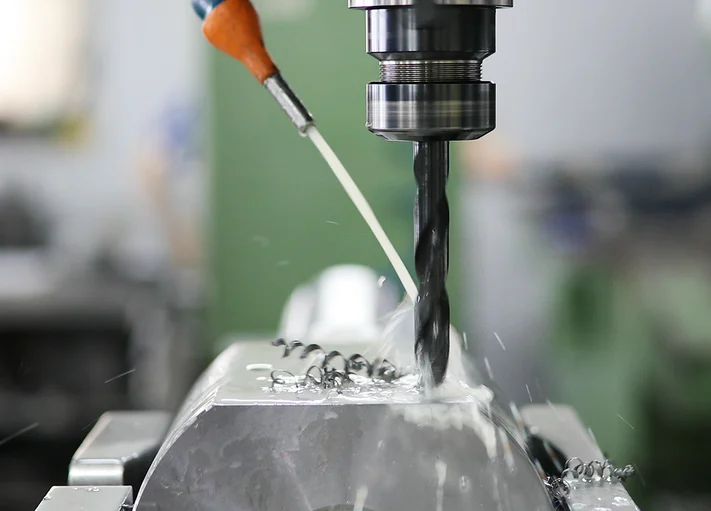Precision Drilling
Precision drilling refers to the process of drilling accurate and precisely positioned holes in materials. It involves using specialized drilling machines or tools capable of maintaining tight tolerances and ensuring high positional accuracy. Precision drilling is crucial in industries such as aerospace, electronics, and medical device manufacturing, where precision and reliability are paramount.

Benefits of Precision Drilling:
Precision drilling improves the quality, accuracy, and efficiency of the machining process. It enables precise hole placement, tight tolerances, smooth surfaces, and enhanced concentricity, resulting in high-quality finished products. Here are some more advantages of precision drilling:
Accurate Hole Placement
Precision drilling ensures accurate and consistent hole placement on steel workpieces. This is crucial for applications where precise alignment, fit, and assembly are required. Properly drilled holes allow for seamless integration of components and facilitate efficient assembly processes.
Improved Surface Finish
Precision drilling techniques and tools produce smoother and cleaner hole surfaces. This is important for applications that require good surface finish for optimal performance, such as mating surfaces, sealing areas, or contact points. A smooth surface finish can enhance the performance and longevity of the assembled components.
Reduced Material Waste
Precision drilling minimizes material waste by ensuring accurate hole placement and size. This is particularly important when working with expensive or limited resources, as it optimizes material usage and reduces costs.
Versatility
Precision drilling is suitable for a wide range of hole sizes and depths in steel workpieces. From small diameter holes to larger bores, precision drilling can accommodate various requirements, allowing for flexibility and adaptability in the machining process.
Tight Tolerances
Precision drilling enables the creation of holes with tight tolerances. This means that the drilled holes have minimal deviation from the specified dimensions. This level of precision ensures that the components fit together properly, reducing the need for rework or additional adjustments.
Enhanced Concentricity
Precision drilling helps achieve better concentricity in drilled holes. Concentricity refers to the alignment of the drilled hole's center with the workpiece's overall geometry. This is critical for applications involving shafts, bearings, gears, and other rotating or moving parts. Improved concentricity ensures smooth operation, reduces vibration, and minimizes wear and tear.
Increased Productivity
Precision drilling techniques, such as the use of CNC (Computer Numerical Control) machines, automate the drilling process, leading to increased productivity. CNC machines can perform multiple drilling operations with speed, accuracy, and consistency. This reduces manual labor, increases throughput, and allows for efficient production in steel machine shops.
Consistency and Repeatability
Precision drilling ensures consistent and repeatable results across multiple workpieces. This is particularly important for batch production or when manufacturing identical components. Consistency in hole size, position, and quality facilitates interchangeability and ease of assembly.

